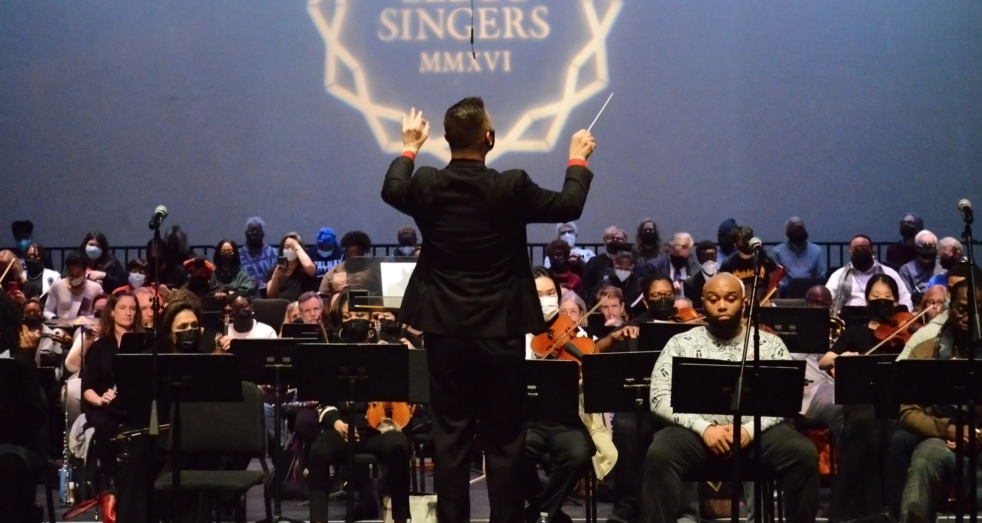In a time when one’s skin color so heavily defines their existence, D. Randolf Hooker believes that it is essential to support spaces where Black students are valued for their individuality.
In 1978, Hooker graduated from Tech with a B.S. in Mechanical Engineering. Seven years later, he matriculated once again with his M.S. in Public Policy. On Sunday, his symphony “Without Regard to Sex, Race or Color” premiered globally at the Ferst Center for the Arts.
This location was not a coincidence; this year marks the 60th anniversary since Tech’s first Black graduate, Ronald L. Yancey, enrolled at the Institute. Six decades later and nearly 50 years since he himself became a Tech student, Hooker is looking back in order to move forward.
Before Tech was desegregated, Historically Black Colleges and Universities (HBCUs) played a defining role in promoting access to education among Black communities.
For students below a college-age, Julius Rosenwald partnered with Booker T. Washington to establish the Rosenwald Schools, state-of-the-art institutions of elementary learning for Black children across the South.
However, since segregation in schools was ruled unconstitutional in 1954, the percentage of degrees conferred to Black students by HBCUs has decreased and the Rosenwald Schools have become all but obsolete.
In the 21st century, while HBCUs are no longer essential for Black students to obtain an education, they are still sanctuaries for these individuals to celebrate their Blackness rather than to conform to their peers.
The history of the Rosenwald Schools, HBCUs and particularly Morris Brown College, the first institution in Georgia to be entirely owned and operated by Black educators, inspired photographer Andrew Feiler to compile two photo-essays, “Without Regard to Sex, Race or Color,” for which to symphony was named, and “A Better Life for Their Children.”The title comes from a phrase inscribed in the Morris Brown College school bell, which now, along with the rest of the campus, has been abandoned following the college declaring bankruptcy in 2012.
In 2017, Feiler asked Hooker to write a musical piece inspired by the stories told within the photo essays.
“He said, ‘I want you to reflect what you feel. You know my journey with this book, you know the story, you know the things I’m trying to entail,’” Hooker said. “A couple of weeks later, I got back to him, and I said, ‘I’ve got this idea for a symphony.’”
“Without Regard” is split into three main movements: “A Heavy Lift,” narrating the beginnings of HBCUs; “J.R. and Booker T,” highlighting the partnership between Rosenwald and Washington in creating the Rosenwald Schools and “A Place Where I Can Be,” inviting audiences to imagine a future without the “straitjacket of race.”
As the music began, performed by the Trey Clegg Singers, the listeners packed into Ferst Center were struck with chills.
“It is really powerful the way they blend voices so effortlessly,” Belinda James, an audience member, told the Technique. “It’s a journey through the music of just what my people have been through, so the emotion and the reaction comes from remembering where we were and then just being so grateful for where we are now.”
More information on “Without Regard” can be found atwithoutregardsymphony.com.
